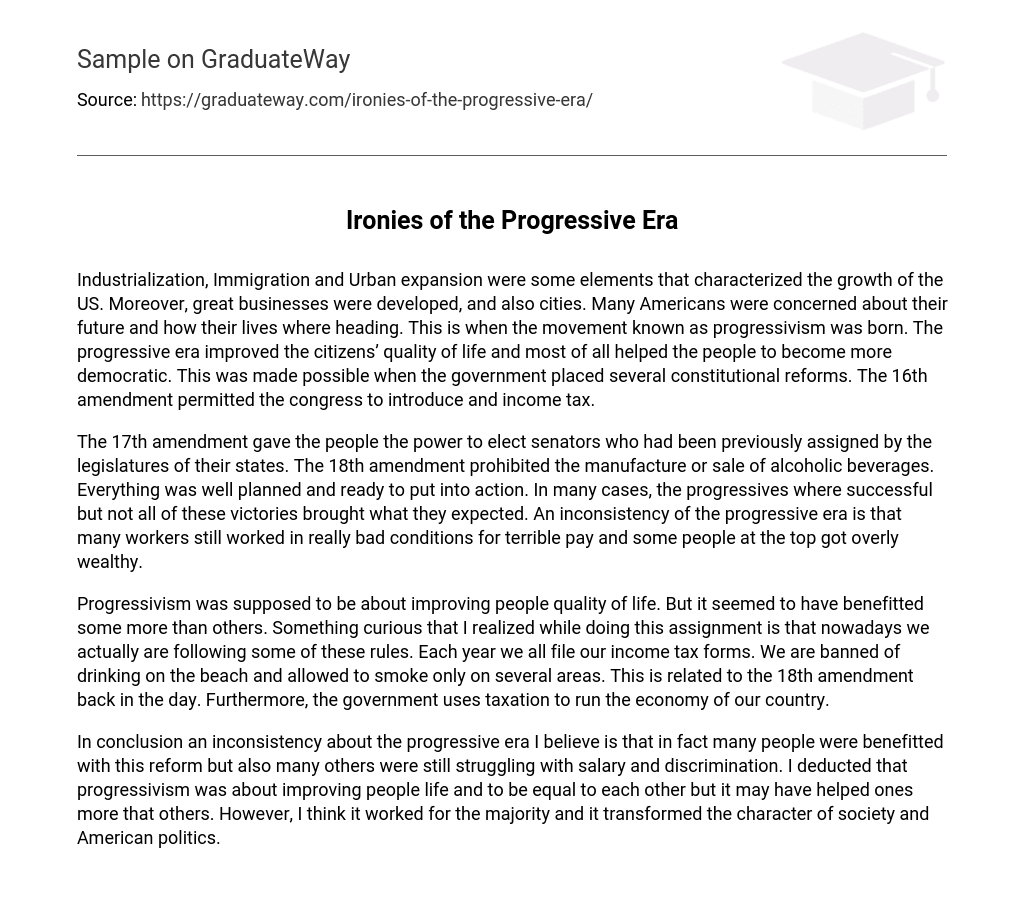The United States experienced growth through Industrialization, Immigration, and Urban expansion, leading to the development of notable businesses and cities. This period also brought concerns about Americans’ future and life path. Progressivism emerged as a movement that aimed to enhance citizens’ quality of life and promote democracy. The government implemented constitutional reforms, such as the introduction of an income tax via the 16th amendment.
Instead of being selected by state legislatures, the public was granted the authority to elect senators via the 17th amendment. Furthermore, the production and sale of alcoholic beverages were made illegal by the 18th amendment. These steps were meticulously planned and readied for execution. Nonetheless, despite numerous successes, not all progressive endeavors accomplished their intended results. Unfortunately, numerous laborers suffered from difficult working conditions and earned meager wages during this era, whereas a privileged few amassed vast fortunes.
The goal of Progressivism was to enhance the well-being of individuals, albeit with a bias towards certain individuals. It is important to note that some of these principles are still upheld today. Each year, we all fill out and submit our income tax forms. Drinking on the beach is forbidden and smoking is only allowed in designated areas, as dictated by regulations originating from the 18th amendment. Moreover, taxation acts as a mechanism through which the government manages our country’s economy.
The progressive era had a contradictory nature. Despite bringing advantages to certain individuals, others continued to struggle with issues like inadequate pay and prejudice. The goal of progressivism was to enhance people’s lives and achieve fairness, although its impact varied among different people. Nevertheless, it significantly altered society and American politics, ultimately benefiting the majority.





